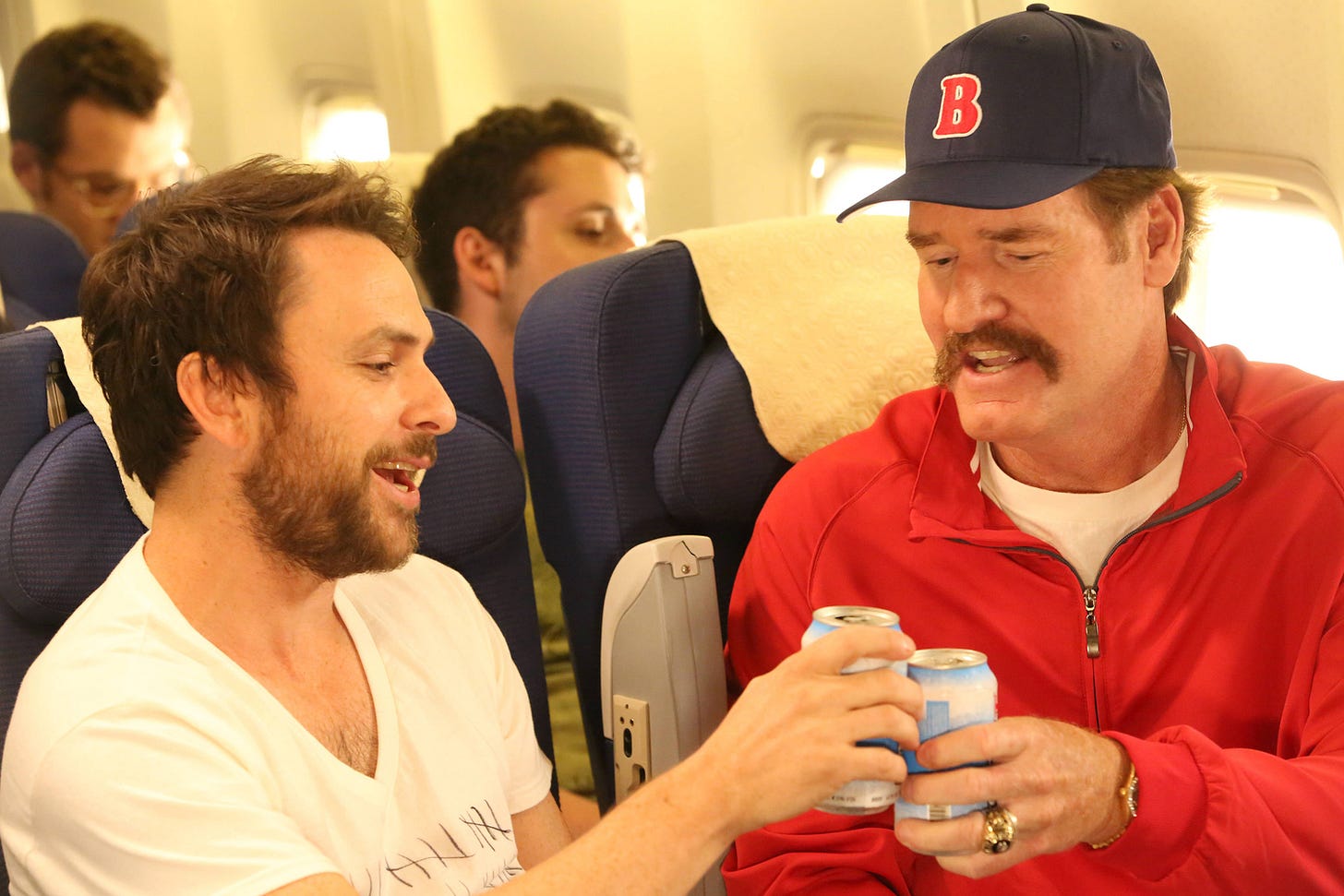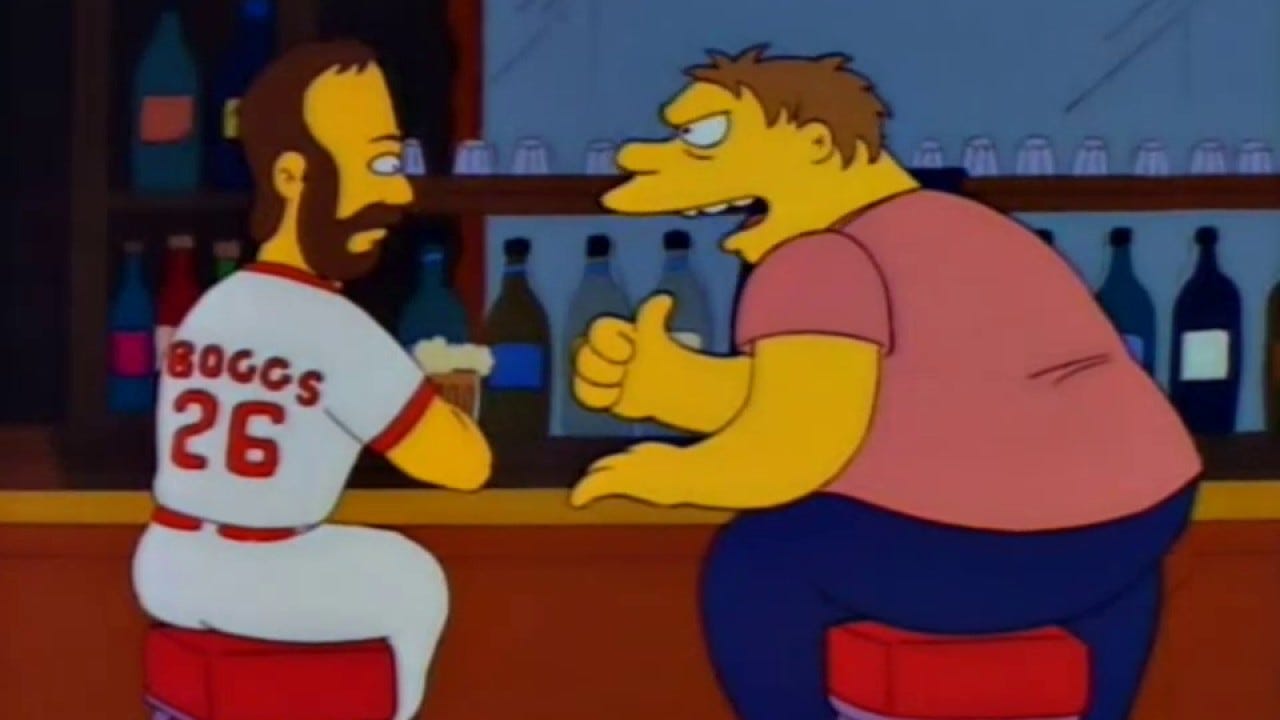It feels like I write a lot about third basemen. This can’t be helped. I grew up in an era of legendary third basemen. Mike Schmidt headlined the National League in my youth, and George Brett, my hometown hero, was the class of the AL. Shortly before I hit the age when other things in life started becoming more important than baseball, Chipper Jones debuted for the Braves.
Of course, I wanted to play third base, and I did, my first year of little league. It wasn’t long before I was moved off the hot corner though, which came as a relief. At first, I was bored. Little league bats, most of whom are right-handed, don’t tend to get around very well, even facing relatively slow pitching, so most of the action is to the right side of the field. And by the time the bats caught up, it was painfully obvious to both me and my coaches that no matter how much I idolized Brett, I didn’t have the natural athleticism required to stick at third.
I moved all around the diamond in the years that followed, and I was even pretty decent at a few positions. Surprisingly, given my lack of speed and agility, I think I made a solid centerfielder, though first and second base were probably my most natural spots. The less we speak of my pitching career, the better. But through it all, I never lost my affinity for third basemen.
As such, I don’t think Wade Boggs gets nearly the credit he deserves. Don’t get it twisted, he’s an all-time great and a Hall-of-Famer, and I wouldn’t even go so far as to include him in the rare class of overlooked Hall-of-Famers. This is an argument I’ve had several times online. Yes, I believe it is possible for an all-time great, even a Hall-of-Famer to be overlooked, even though that sounds like an oxymoron.
I submit another third baseman, Eddie Mathews, as evidence. Mathews is hardly forgotten, nor is his place in baseball lore insignificant. But he’s a top five third baseman of all time, and he doesn’t possess nearly the same name recognition, especially among casual fans, as his contemporaries Mickey Mantle, Hank Aaron, and Stan Musial, just to name a few. Yet whenever I suggest this, I get accused of somehow underrating him. If anyone’s underrating him, it’s popular baseball history. I believe he deserves far more acclaim than he gets in the modern day. But I digress.
Boggs is somewhere between Mathews and the combo of Brett and Schmidt in the public consciousness. He’s not lacking in adulation, but he never gets quite the attention of the latter duo, or even Chipper. I’m guilty of this myself, even though I saw far more of Boggs’ prime than either Brett or Schmidt.
Some will argue this is fair because he just wasn’t quite as good as either of them, and maybe that’s true, but he wasn’t far off. In the late eighties, as Brett declined and was moved off the hot corner, Boggs locked down the AL’s third base spot in the All-Star Game and made it his own for most of the next decade, just as Brett had done before him.
Boggs made eight straight All-Star Games, and while he didn’t have the pop of Schmidt or even Brett, he was a maestro with the bat. Boggs won five AL batting titles, and led the league in OBP six times. He was the Tony Gwynn of third basemen, and his game was perfectly constructed for Fenway Park and the Green Monster. He hit over forty doubles eight times, and led the league twice, topping out with an impressive 51 in 1989.
Unlike the other third basemen I’ve mentioned, I’m not sure Boggs would succeed in the modern game. The guy only reached double digits in home runs twice, hitting 11 in 1994, and barreling 24 bombs out of nowhere in 1987. Ironically, his 3,000th hit came on a dinger. But power stirs the drink in the modern day, so I don’t know if he’d be given a serious shot today.
Boggs is on record as not caring much for today’s baseball, so perhaps we should just be grateful he played when he did. Because he is a baseball icon, and not just for his excellent play on the field. Wade Boggs takes a backseat to no player when it comes to the stories about his life and career. Let’s briefly touch on some of the best ones.
Many of you are probably already aware of his superstitious eccentricities. He fielded exactly 150 ground balls every practice, wore the same socks every game, drew the Hebrew word chai which means “good luck and life” in the dirt before every at-bat, and famously ate a whole chicken every gameday, earning him the moniker, “Chicken Man.”
And if you’re a fan of It’s Always Sunny in Philadelphia, you probably have at least a familiarity with his Herculean feats of drinking. In one episode, the gang tries to top Boggs’ record for beers on a cross-country flight to Seattle. The actual number of beers is debated, but Boggs claims to have drunk 73 on the flight, and then kept drinking after landing for a grand total of 107. Those are Andre the Giant type numbers.
Do I believe Boggs drank 107 beers that day? Not really, but it makes for one hell of a story. And I have no doubt he did put away on obscene amount of beer, and it had little effect on his playing ability. As the show states, Boggs did indeed go 3-3 with two doubles against Mark Langston of the Mariners the following day, and Langston was no slouch on the mound.
These are far from the only tall tale-caliber stories surrounding Boggs, although some of them have a darker edge to them or are downright tragic. For example, his mother was killed in 1986 when a cement truck driver hit her after running a red light. As if a situation like that could be any worse, the driver was actually on work release from jail when it happened. Between that and Boston’s devasting loss in the ’86 World Series, Boggs nearly retired before his dad convinced him otherwise.
Boggs’ superstitions kept him grounded at the ballpark and helped him stay on top of things on the field, but he was a magnet for crazy drama away from baseball. In 1991, he fell out of a moving jeep and was accidentally run over by his wife. Luckily, he escaped serious injury, but many late-nite comedians were left wondering how accidental it actually was, considering this was the same wife who was humiliated a few years earlier when Boggs’ mistress sued him for palimony and embroiled them all in a very public scandal.
My favorite Boggs story dates from around that same time in 1988, when he and a few teammates were involved in altercation outside a Gainesville, Florida bar. In what may or may not have been a robbery attempt, Boggs claimed he escaped harm by “willing himself to become invisible.” That’s not a euphemism for something, he really claimed to turn invisible, and he said it wasn’t the first time he did it. Of course, he still received a cut on the neck, so I don’t know if invisible Boggs was standing in the wrong spot or if his superpowers simply failed him in the end.
No one can deny the man had a vivid imagination. He’d have made a great novelist, and I’m sure he’s entertaining as hell to have a beer with. Just don’t argue with him over the greatest British prime minister like Barney Gumbel did in the legendary Simpsons episode, “Homer at the Bat.” In that episode, it was Barney who knocked out Boggs, but in real life, if Boggs has a chance to turn invisible, you’re more than likely getting your ass kicked.
Thanks for reading Powder Blue Nostalgia. If you enjoyed it, I invite you to subscribe. I’m sure I’ve only scratched the surface on Wade Boggs stories, so if you have any good ones I overlooked, feel free to leave a comment below!






Thanks Patrick,
Interesting article and laughed out loud at several of the stories. I'm sure many of the ball players had female friends in various cities, they just didn't get caught. We've all made mistakes we're not proud of, thankfully we have a forgiving God. Baseball coach at Wichita State for years recruited short stops and turned them into other positions. He won a lot of ball games over 20+ years doing that. Have a great week!
Thanks. That was a great read. I also inexplicably liked Greg Nettles and had a Nettles model glove. Nobody told me I was supposed to hate the Yankees.